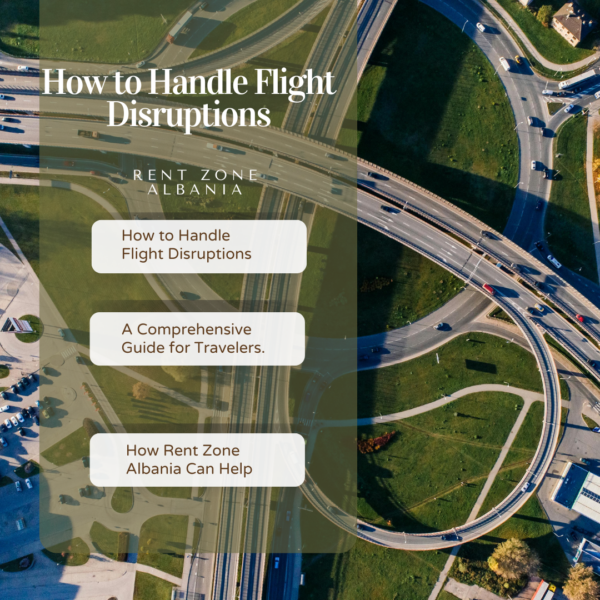“Driving in Albania: Essential Driving Tips and Road Safety Guide for Albania Travelers”
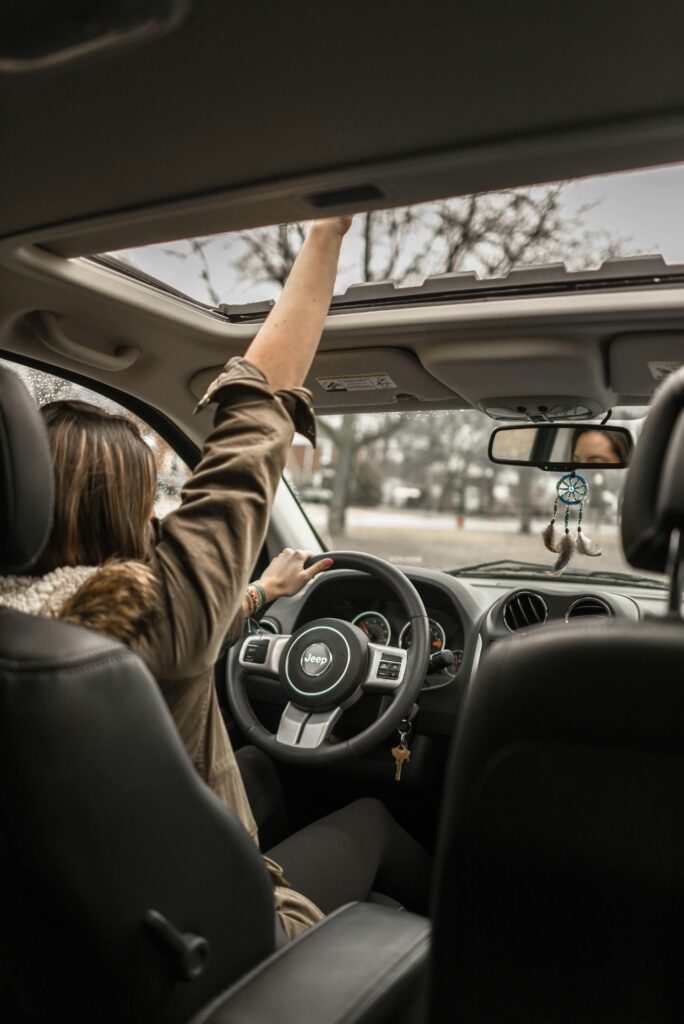
Driving in Albania means you will get to experience the most wonderful and memorable sights this place can offer. And positive to say this country has a lot to serve you, starting from the most beautiful and blue beaches of Ballkan to the highest mountains straight from fairytales. The climate and driving experience here, however, could seem more dissimilar than you’re used to. Here is a thorough guide with over 25 specific points that will help you drive safely and enjoy your trip, covering everything from legal requirements to useful driving advice.
1. First, facing the law
First and foremost, you should be aware that traffic laws in Albania are far more stringent and that breaking them will have serious repercussions.For example, Albania has a 0.01 mg/mL legal blood alcohol level and a zero tolerance policy for drinking and driving.Which means even one drink can lead to you getting punished by law.
Additionally, seat belts are a basic need while on the road for both the driver and the passengers.. Ensure you have all necessary documents, including your driving license, car rental agreement, and an International Driving Permit (IDP) if your home license isn’t in English or Albanian. You can also bring your passport with you for additional credit in case it’s requested or needed.
2.Being Aware of Speed Limits
In Albania, speed restrictions vary depending on the region and kind of road you’re travelling on. The usual speed limit in cities is 50 km/h; however, it reduces to 20 km/h in residential areas and close to schools. You can drive up to 90 km/h on non-urban routes and up to 110 km/h on motorways.
Be mindful that speed limits are often enforced, especially in urban areas and on major highways, with speed cameras or by police patrols. Violating speed limits can result in serious consequences, such as fines that are passed to the company whose car you are renting.
Be ready for the drivers to act in an unfriendly manner.
The erratic behaviour of other drivers is one of the most difficult things about driving in Albania.
By that, I mean that residents frequently disregard traffic signs, change lanes without first signalling, or even stop suddenly. Pay close attention to what is going to happen next.
3. Handling Diverse Road Situations
The road system in Albania consists of both rugged mountain roads and well-maintained motorways.
While many rural roads can be difficult to navigate, main roads are usually in decent shape. Unpaved areas, potholes, and twisting, narrow.
Particularly in mountainous regions, paths are widespread. These circumstances necessitate ongoing attention to detail and taking care, especially if you’re not accustomed to driving in such environments. In rural areas, roads may be poorly lit or entirely unlit at night, making daylight driving preferable
4.Fuel Up Wisely
While Albania will offer you a variety of gas stations, the quality will also be different from one to another. In major cities, you’ll find modern stations that accept credit cards. In rural areas, it’s common to find stations that only accept cash. It is recommended to have Albanian money (lek) or EUR. You need to always make sure that your car is fully fuelled if going on long car rides in Albania.
5.Watch Out for Speed Cameras
If you are caught speeding in Albania by the cameras that the government has put up in highways, then the fee will be passed to you by your rental company. In order to avoid fines, always respect the given speed limits.
6.Select the appropriate rental vehicle.
It’s not as hard as you would assume to rent a car in Albania. Make an informed decision and remember to take Rent Zone Albania into consideration.
If you intend to go through mountainous or rural areas, think about hiring a car 4×4 with
increased ground clearance. This will facilitate navigating steep inclines and uneven roadways. The car rental company offers a full range of insurance benefits, such as protection against possible harm due to bad traffic conditions.
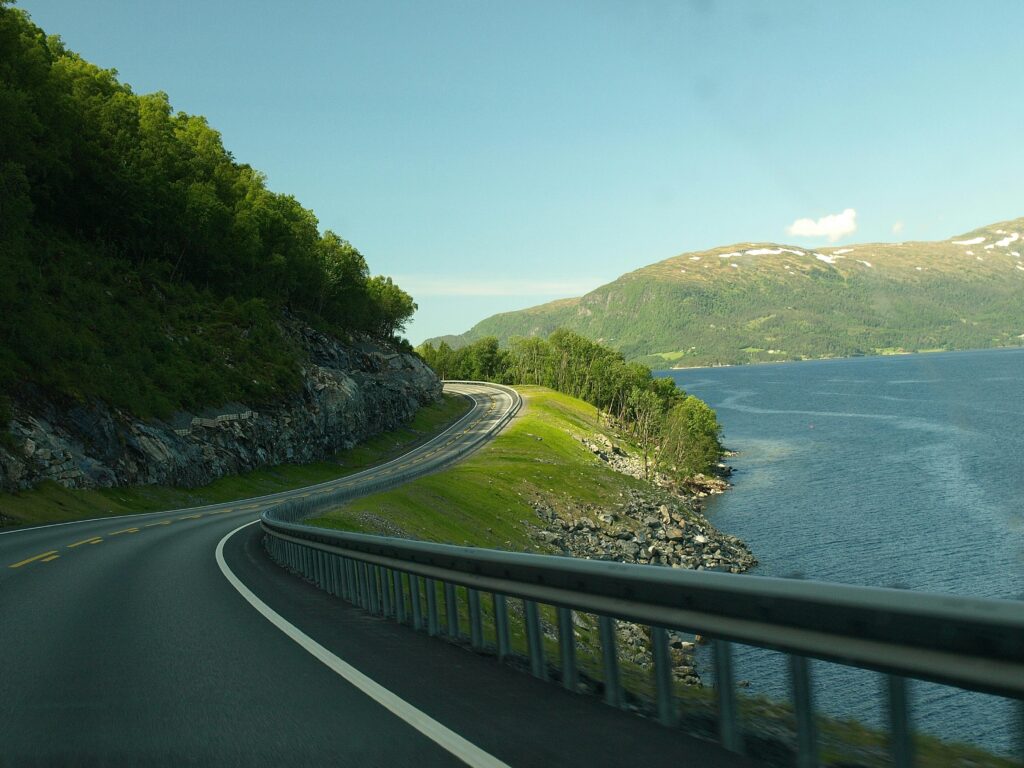
7. Steer clear of driving after dark.
Driving in Albania or in a lot of other places at night can be dangerous, especially on rural roads. Many roadways are not adequately lit. The possibility of running into hazards like potholes, animals, or cars with broken lights rises dramatically after dark. Additionally, drunk driving tends to be more present at night. If you really need to drive at night, be very cautious.
8.Learn the Basics
Albanian is the official language. Although many individuals, especially younger Albanians, understand English in tourist areas, it’s helpful to know a few simple Albanian words.”In rural Albanian places, while English is less spoken and it is hard to understand the locals, you will need the basic phrases like;
1. Faleminderit – thank you. 2.Please -lutem
3.Me fal – sorry/excuse me 4.Dalje – exit
5.Më ndihmo! -Help me! 6.Kam humbur -I’m lost.
7.Ku është…? – Where is…? 8.Sa kushton? – How much does it cost?
9.Parking Tips:
In some big cities, it is difficult to find parking. Always look for white signs and signs that show that this is a safe parking area. Avoid parking on the yellow lines, which indicate that there are penalties for such wrong parking. Try to park your car in the paid garages so that your car is parked safely with cameras and monitors, so you will avoid accidents that happen to your car without your knowledge. Also, the capital and some big cities have the option of paying for parking through apps or special messages if you don’t want to pay cash.
10.Emergency Numbers:
- Police number 129
- Fire brigade number 128
- Ambulance number 127
- Traffic police number 126
In Albania, is not yet active the option of dialling 112 to connect you to emergency services, including police, fire, and medical help. Although it is not yet operational, this number offers a unified emergency contact that is perfect for prompt action in any emergency.
11. International Travel:
You should always check with the rental car company before making a reservation because many of them do not permit crossing the border. If you agree in advance, you will need to present the required paperwork to be issued an authorisation for travel overseas and any other required documents.
12.Winter Driving and Mountain Passes
Before driving in Albania keep in mind that Albania’s mountainous regions, particularly in the north, can present challenging driving conditions during the winter months. The constant snow and ice on the road will make it slippier. If you plan to drive in these areas during winter, ensure your rental car is equipped with winter tires andcarry chains for additional traction.
Before leaving, always check the weather and road conditions because snow may cause some mountain roads to be closed or difficult to travel (this is very rare). Mountain driving necessitates cautious attention even in favourable conditions because of the steep grades, hairpin turns, and potential for running into cars approaching blind curves.
13.Weather and Ideal Travel Times:
• Summer (June to August): The Albanian Riviera is warm at this time, making it a good time to explore the seaside. However, crowds are anticipated during the busiest travel season.
• Spring and Autumn: With significantly milder temperatures and fewer tourists, these seasons offer fantastic chances to see cities, mountains, and cultural sites.
• Winter: December through February can be a peaceful time of year because of winter sports in the mountains and fewer people in big cities.
14.Don’t always expect the best from the GPS.
Albania’s roads might be sometimes confusing to the Google Maps or navigator. GPS might direct you onto unpaved or narrow roads that are difficult or impossible to navigate with a standard car. What is better is double-checking with an actual map or even asking locals who know the place very well. Be cautious of taking shortcuts or other paths while being navigated by the GPS in Albania.
15.Interacting with law enforcement
The Albanian police have a reputation for being conspicuous on the roadways, particularly in and around large cities as well as on roads. They might pull over cars at random to look for speeding infractions or to verify documents.
Always have your passport, driver’s license, and rental car with you, and make sure your vehicle has the
required registration and insurance paperwork. Fines for traffic violations can be high, and it’s usually better to pay them on the spot if requested rather than contesting them later.
16.Dealing with City Traffic
The traffic in Albanian cities can be particularly difficult when driving. To prevent getting lost or caught in traffic, always plan your route ahead of time, albanian drivers way be aggressive in trafic, and a lot of times they do not follow the rules.
17.Cash is essential.
While you can use credit cards in hotels, restaurants, and larger petrol stations in urban areas, smaller businesses, rural petrol stations, and many toll roads only accept cash. Always having adequate local cash on hand is a good idea (lek) to pay, especially when travelling in isolated places. Although most towns have ATMs, they might not always be in handy locations along your path.
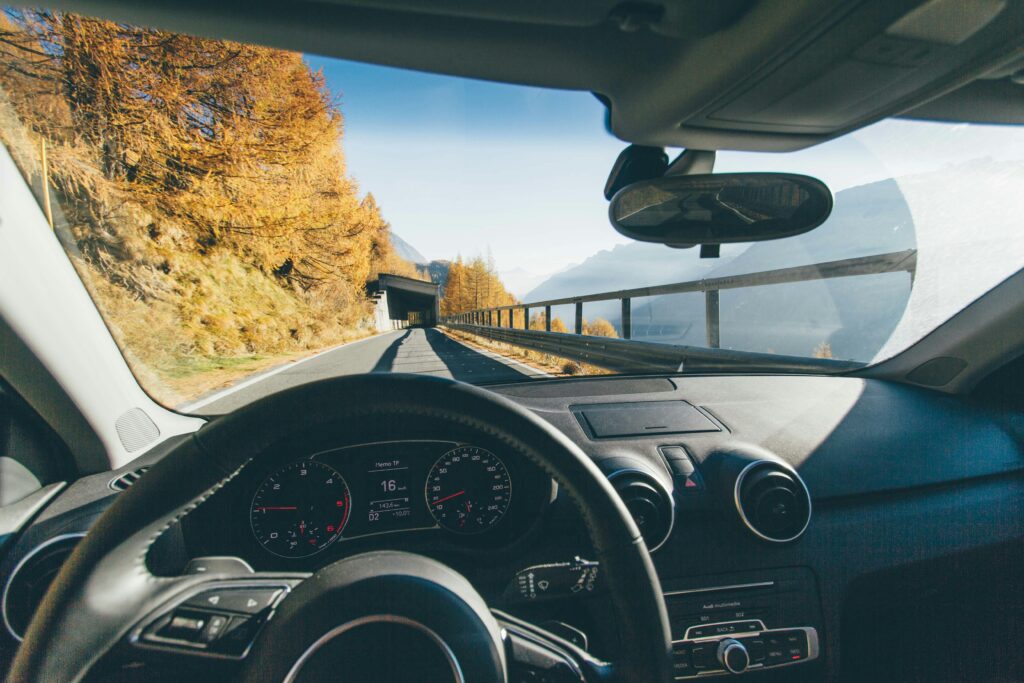
18. Getting Over Mountain Roads
Albania is renowned for having some of the most picturesque drives in the world due to its untamed alpine scenery. However, driving in these areas requires caution and skill. Mountain roads are often narrow with steep climbs, sharp turns, and limited visibility.
Guardrails are not always present, so it’s important to drive slowly and carefully. The north of Albania, for those who do not know, has very steep mountains, which you may not be prepared for. What is often advised by the locals, but not only, is that you rent a 4×4 vehicle.
19.Think about the locals.
Be very careful and mindful while driving in Albania and passing through populated areas of this city. Honking your horn is generally considered rude, so avoid doing so, unless it is absolutely necessary. If you stop in a village, be polite and friendly; Albanians are known for their hospitality and will often go out of their way to help visitors.
20.Watch out for animals on the road.
What is one thing you can never avoid while driving in Albania, especially in the mountains, is that the farmers will feed their livestock in these types of mountains, and the long caravan may take a while to move, so just be patient and never violate or threaten them.
21.Pedestrian Awareness
In Albanian cities and towns, pedestrians often cross the road unexpectedly, even outside of designated crosswalks. Which means you need to be careful and pay close attention to the elderly or even little kids who often make this type of mistake while crossing the street.
22.Keep abreast of road conditions.
Due to Albania’s rapid development, road conditions are subject to regular changes. Roadworks, new building projects, and upkeep are frequent, especially in and around large cities like Durrës and Tirana. It’s a good idea to enquire about the state of the roads or read the local news before taking lengthy drives, particularly while visiting isolated locations. Some roads can be closed or detoured, and there could be significant delays due to work sites. Being conscious of the condition of the roads will allow you to plan your route more effectively and prevent unnecessary stress.
23. Things to Consider About Insurance
When you are in Albania, make sure you are fully aware of the insurance coverage provided by the rental car company. Not all potential risks may be covered by basic insurance, even if it typically does. Damage resulting from poor road conditions or theft. Consider purchasing additional insurance coverage.
Think for collision damage waiver (CDW) or theft protection for peace of mind. It’s also important to inspect the vehicle thoroughly before accepting it and reporting any existing damage to the rental company to avoid disputes later. Keeping a copy of your insurance documents in the car is recommended in case of any incidents.
24.Visas: Visa-Free for Many Nationalities.
Citizens of the US, UK, EU, and several other countries are allowed admission into Albania for up to 90 days without a visa during a 180-day period. Verify the requirements for your nationality before you travel and decide driving in Albania.
25. Data and Wi-Fi Options:
The majority of metropolitan cafes, restaurants, and hotels have Wi-Fi. It’s fairly straightforward and reasonably priced to purchase a local SIM card with a data package if you desire continuous connectivity.
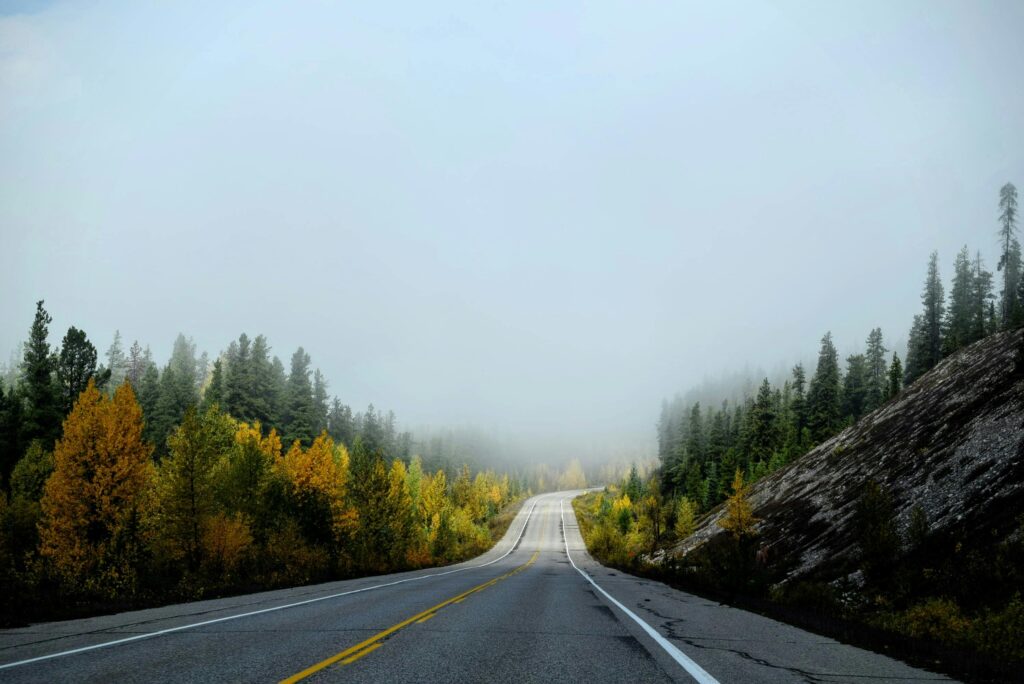
Enjoy the Journey
Driving is a unique and rewarding way to experience Albania’s diverse landscapes with a rich history and a vibrant culture. Despite potential challenges on the roads, with the right preparation and attitude, you can navigate them safely and effectively. Take the time to research the lesser-known routes, pull over in little towns, and talk to the friendly locals. Albania is a multicultural country where traditional practices and contemporary innovations clash, and each route leads to a new finding. Thus, relax, unwind, prioritise safety, and enjoy the journey to Albania.


